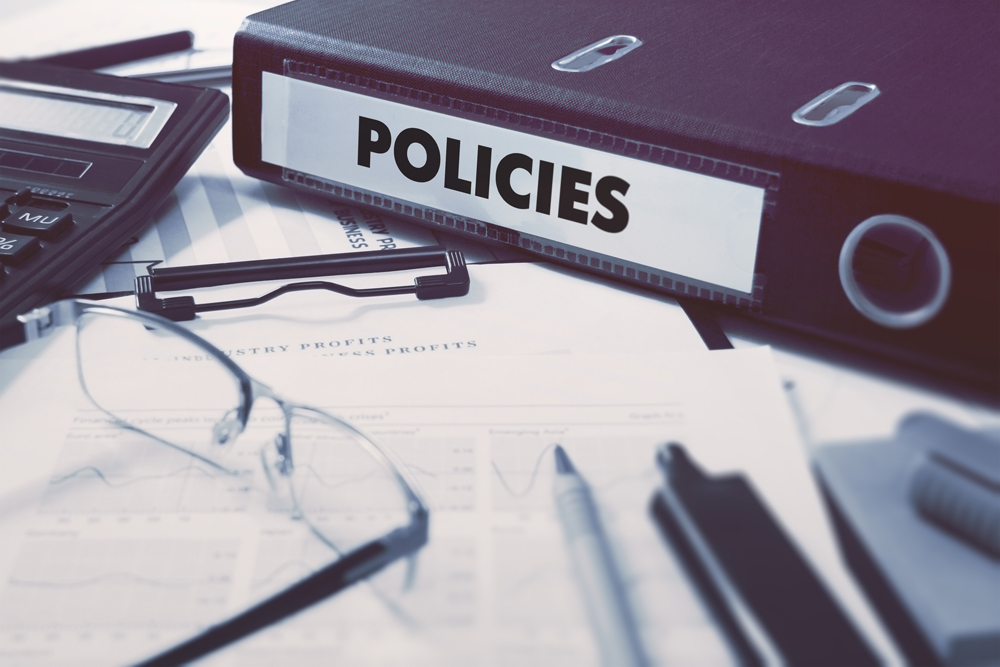How To Choose The Right Mortgage Lender – 6 Key Aspects You Need To Know

Sooner or later we all face the question: How to choose the best mortgage lender? And there are plenty of good reasons for that. Mortgages are one of the best ways for Americans to be able to buy a house… But there are so many different things one should consider before choosing the right one!
This guide can help you understand which are those things to look for on a mortgage!
Let’s get to it!
1. Get familiar with how mortgages work
Mortgages are loans provided by financial institutions -like banks-, and aimed to buy or improve a house. These loans are paid back on a monthly payment basis, and it usually takes between 10 to 30 years to clear the debt.
The amount you can borrow, the interest rate, and the monthly payments are set depending on the type of loan, your credit score, and your income-to-debt ratio.
That is the reason why you should take enough time to evaluate your options. Remember you won’t be getting rid of that mortgage for the next decades.
2. Check Mortgage Loans And Interest Rates

When looking for a mortgage lender, there are some things you want to be sure of, before deciding. Such as the type of loan you need, and the interest rate that you are willing to pay for the next decades.
Types Of Mortgage Loans
Conventional loans
These are the typical loans a bank or credit institution will offer. Although many lenders may require some extra steps, they all have similar requirements: A good credit score, a stable income and employment, and anything from 3% to 20% as a down payment.
Conforming Mortgage loans
The Federal Housing Finance Agency sets maximum loan boundaries for each area. Any loan under those limits is known as a Conforming mortgage loan.
Non-conforming mortgage loans
On the other hand, some lenders can offer loans above that threshold. Those are known as non-conforming loans or Jumbo loans and can exceed up to 115% of the baseline loan limit.
FHA Loans
The Federal House Administration can help you get a loan from an FHA-approved institution if your credit or income standard doesn’t meet other mortgage requirements.
Veteran Affairs (VA) Loans
VA loans are meant for veterans and active-duty military personnel. This is one of the few options where the borrower can get a mortgage loan with a 0% down payment.
United States Department of Agriculture (USDA) loans
You can access these loans only in selected rural areas. They are very similar to the rest, but the loan amounts tend to be smaller.
Interest Rates

Fixed-rate
It means you will pay the same interest rate for the term of the loan. This is the most common type of interest rate because it can help borrowers to plan.
Variable-rate
Even variable rates are fixed for the first ten years. But after that period, variable rates get adjusted constantly according to present market conditions. This option is ideal if you plan to move after a few years or if you want to refinance the house after the fixed-rate period.
3. Compare different lender options
Many institutions can provide you with a mortgage loan, and all of them carry their unique benefits and regulations. The most common are:
Banks
Banks are known for the different financing products they offer, and mortgages are one of the main ones.
Most people tend to think of banks as the first option to look for a mortgage. And while this is not always the best option, there are many cases when a banking mortgage just works.
Some of the reasons to choose a bank mortgage are how easy it is to find options and the fact that you can apply in person, or online in most cases. Many people prefer a bank mortgage if they already have savings or credit accounts on that particular bank.

Credit unions
From small lenders to multi-state companies, in the US there are more than 5,000 different credit unions that offer all types of financing products. From savings or credit accounts to different types of loans, like mortgages.
Credit unions offer a personalized experience, and in many cases, member-only special deals.
On the downside, you need to become a member to enjoy the benefits, and sometimes membership can be complicated. Many credit unions will only accept relatives to their actual members, people that live in a certain area, or colleagues from a certain work field.
Non-bank mortgage lenders
Many of the mortgages American people use nowadays come from non-bank institutions. Some of those companies offer online-only services. Many of those lenders specialize in loans, and much more work only with mortgages.
Non-banking lenders can be one of the fastest ways to get a mortgage loan. They can help you get approved even if your credit score is not perfect, and they also can help you land a non-conventional loan, -such as an FHA mortgage-.
Mortgage brokers
As their name stands, mortgage brokers can help you compare the options available in the market. This is one of the best alternatives if you want to check many different lenders at once.
Getting a mortgage broker may save you a lot of time and energy shopping around, but just for that reason, it tends to be more expensive than the rest.
A mortgage lender also works for first-time borrowers, since they can advise you about the best loan offer for your particular case. Think of a mortgage broker as an intermediary between you and potential lenders.
Mortgage marketplaces
Marketplaces work very similarly to mortgage brokers since they allow you to compare the available options from many different lenders. As mortgage marketplaces tend to be available online, they have tools that let you compare very specific things from different lenders, such as loan terms and interest rates. This is a very good way to make sure you are ok with your monthly payments and loan terms, before signing in.
4. Things you should know about your mortgage lender

Let’s be honest! Nowadays it is way easier to find a mortgage lender than to avoid them. From social media ads to aggressive marketing campaigns, lenders are more interested in finding you than ever.
And that’s great news for us, borrowers! Since we can use all those resources to check and compare options.
A lot of people start with the bank where they already have an account, and that could be a really good starting point! Consider you already have an opinion about the institution, and in many cases, you can integrate all of your services.
Besides, many banks offer special deals to old customers that acquire new products -such as a mortgage-. In most cases, you can also set up automatic monthly payments from your savings or credit account, so you don’t have to do it manually (and/or get late) each month.
Talking to family, friends, and neighbors is way underrated! You can get a lot of valuable insight from other people’s experiences. Don’t be afraid to ask your neighbors or that distant relative who just bought a house.
Questions you want to ask your lender

Getting a mortgage loan can be a little daunting. Most first-time buyers experience a lot of uncertainty and doubt at the beginning of their mortgage, that’s why you can (and should) ask all the questions beforehand.
Some of the things you want to ask before signing in are:
● How long does the process usually take?
● Are there any closing costs?
● Will you or someone else be my main contact after signing in?
● Where, how and who will take care of things such as appraisal, the house inspection, and closing?
● In case of financial difficulties, how can I avoid foreclosure?
● What are the penalties for late payments?
If you are working with a mortgage broker, remember to ask how many lenders they evaluated, and how. You also want to know how much they will charge you for their service.
A quick guide to compare between mortgage options
There are many things you need to pay attention to once you start comparing mortgages. While many of them work very similarly, the devil’s on the details. That’s why you need to check:
Interest rates
These rates can be very different from one to another option. Make sure you are aware and comfortable with the interest rate set on your mortgage. And if you are not sure which type of rate is ideal for you, you can take a look at this article, with everything you need to know about mortgages “Mortgage loans for first time buyers -The complete guide”.
Interest rates change constantly. You can choose between fixed and variable rates, but you need to evaluate the way you want to use the loan, and the loan terms before deciding which one works better for you.
Fees
Mortgage loan fees can be very confusing. While some lenders are very clear about what they charge and why, a lot of them also try to take advantage of how complicated the process is, to add unnecessary and expensive fees to unaware borrowers.
Do not hesitate in asking about anything, and particularly about any fee that doesn’t seem to make sense.

Insurance and Down payment
Most mortgages require you to make a down payment for at least 20% of the property value, although some options such as VA and FHA loans, can sometimes require smaller amounts. Regardless of the lender you choose, it is always a wise decision to make a down payment as big as you can, since this can significantly reduce your mortgage terms, but also can help you save on interest and fees.
There are a couple of options that allow you to get a mortgage with less than 20% down, but in those cases, you will need to pay private mortgage insurance (PMI), which can significantly increase your monthly payments.
Not sure yet which lender is right for you yet? You can use the Department of housing Lender List Search page to evaluate your options.
Ask your lender about assistance programs
Depending on factors such as the state you purchase and even the lender you choose, you have access to different federal or state programs. The most common ones are first-time borrower assistance programs that can help you with a down payment or closing costs.
Frequently asked questions about Mortgage lenders
5. Things to look for in a mortgage lender

Every borrower is different, so one of the first things you need to do is to crunch your numbers and decide on your budget. After that, you need to compare things like interest rates, private mortgage insurance, and any other fees.
If you think you may have any problem with things like your credit score, income, or any other issue, different lenders and loan programs still can help you purchase a house. Although, remember special circumstances often mean higher interest rates, bigger down payments, or longer loan terms.
One of the best things you can do is decide what aspects of a mortgage lender are more important. Is it the personalized service, the online experience, or the credit score flexibility?
Another factor that can help you decide is the type of institution you are comfortable working with. Would you like to get a loan from the bank you already have an account in? Or maybe you are already part of a credit union you like?
Although if you qualify for an FHA or VA loan, there are lenders that specialize specifically in those.
6. Frequently asked questions
1. What should I look for in a mortgage lender?
The first thing you need to do is to check your finances and decide on a budget. Then start looking for lenders with that budget in mind.
Pay attention to the interest rate, the down payment amount, and the loan terms. And beware of unnecessary insurance fees.
2. What type of mortgage do I need?
The type of lender you need is determined by the type of mortgage you need. Some lenders specialize in FHA or VA mortgages, while some others are experts in Home equity or reverse mortgages. Define the type of loan you want and then look for lenders with experience on those.
3. How do I compare mortgage lenders?
There are a lot of things to compare between mortgage lenders, but the ones that will affect you directly are:
● Interest rates. Those can be fixed or variable, and they are different for every lender.
● Credit score requirements. Some lenders will require a minimum of 620 while some others will be able to give you a loan with 580 (usually with FHA loans)
● Loan terms. This means how long you will be making monthly payments. Look for a lender that allows you to make early payments with no penalties.
● Extras. Many lenders add unnecessary insurances and fees. Make sure to read everything and ask about any fee that looks suspicious to you.
4. What questions should I ask mortgage lenders to compare them?
You need to ask everything! From terms to interest rates, to fees. Some of the questions many people forget to as are:
● Are closing costs included on the mortgage or do they have an extra cost?
● Are there any penalties for early payments?
● How can I avoid foreclosure in case of bankruptcy or natural disaster?
5. Should I get a fixed or a variable rate mortgage?

Most borrowers prefer to get a fixed interest rate because that way they know in advance how much they will be paying each month. However, if you plan to sell the house or move from there in the next 10 years, maybe a variable rate will work better for you since variable rates tend to be lower at the beginning of a mortgage.
Conclusion
Mortgages are one of the best ways to buy a house, but finding the right one for you can become challenging with so many options in the market.
Remember not all lenders are in all states, but also, remember to keep in mind the type of mortgage you need, and the options available in the market.
If this is your first time looking for mortgages, you may want to take a look at our complete guide on mortgage loans for first-time buyers “Mortgage loans for first-time buyers -The complete guide.
Let us know which one of the mortgage options seems more appealing to you? And if you want to find more information about mortgages, follow us on social media!





